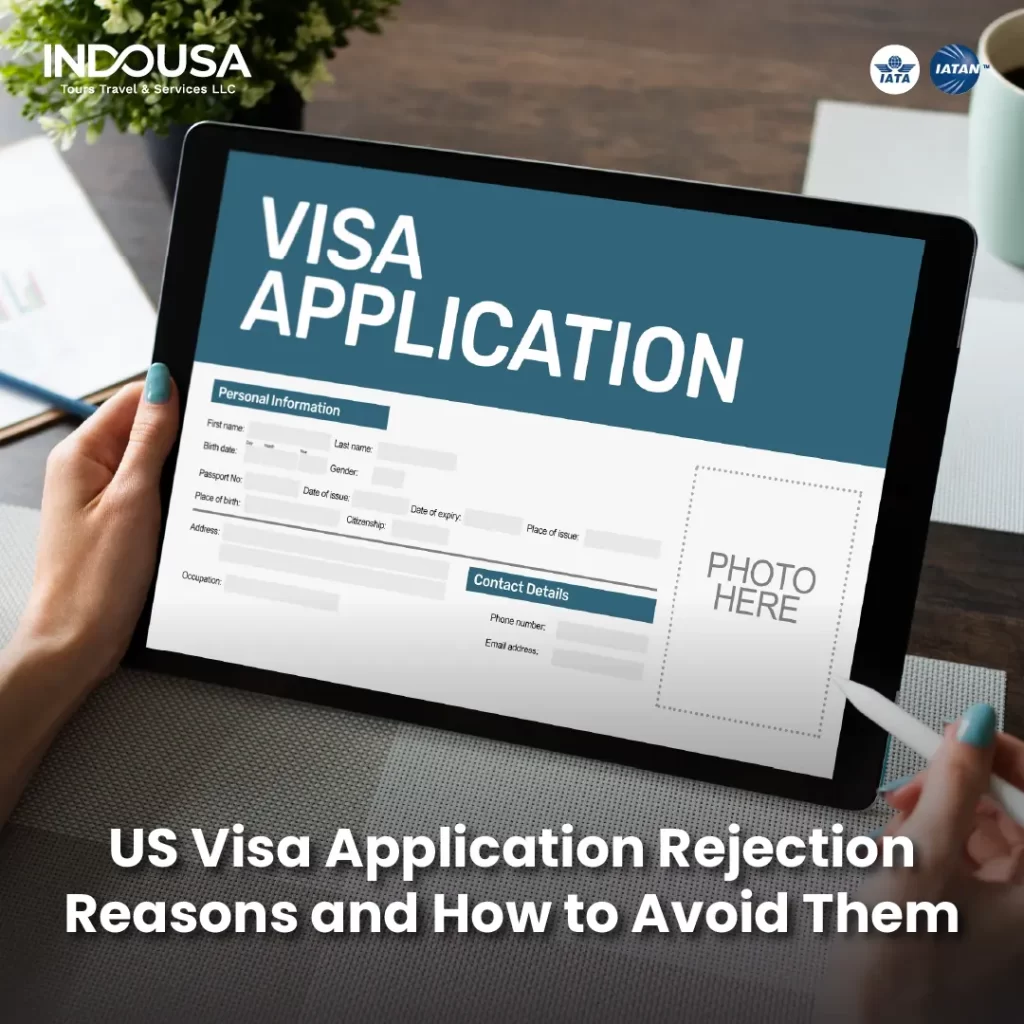
Applying for a U.S. visa can be a complicated process, and unfortunately, some applications are rejected. It’s important to understand the common reasons for visa rejection and learn how to avoid them in order to increase your chances of approval. Here are some of the top reasons and ways to avoid rejection.
Incomplete or Incorrect Documentation in Visa Application
One of the main reasons for visa rejection is incomplete or incorrect documentation. This may include missing information, incorrect details, or inconsistencies.
To avoid this, you need to carefully read the instructions on the U.S. Department of State website. You can also contact the U.S. Consulate or Embassy specific to your country. Ensure that you submit all required documents, with all necessary information. Besides, make sure that they are consistent with your application. Double-check all information for accuracy before submitting your application.
Insufficient Financial Support
Applicants may be rejected if they cannot prove sufficient financial means to support themselves during their stay in the U.S. without becoming a public charge.
Provide bank statements, pay stubs, tax returns, or other relevant financial documents showing your stable income. Or, if someone else is sponsoring you, provide documents proving their financial stability and commitment to supporting you during your stay.
Failure to Establish Strong Ties to Home Country
Visa officers will reject applications if they believe the applicant does not have strong ties to their home country and might not return after their temporary stay in the U.S.
Show evidence of strong ties to your home country, such as a stable job, property ownership, family commitments, or social connections. Include documents like letters from your employer, property deed, or any other paperwork that supports your ties to your home country.
Ineligibility Due to Previous Violations or Criminal History
Applicants with a history of U.S. immigration violations or a criminal history may be ineligible for a visa.
While some situations may not be easily avoidable, make sure to disclose your full history truthfully on your application. Consult with an immigration attorney if you have a complicated history or are unsure about your eligibility.
Lack of a Valid Purpose for Traveling
If the consular officer isn’t convinced that the applicant is traveling for a legitimate reason, the visa may be denied.
Clearly demonstrate your purpose for visiting the U.S. (e.g., tourism, work, study, or family visit). Submit the necessary supporting documents, such as an event invitation, conference registration, or letters from family members.
Inadequate Preparation for the Visa Interview
Being unprepared for your visa interview can lead to rejection.
How to avoid: Prepare for common interview questions about your purpose for travel, your ties to your home country, and your financial means. Be honest and consistent in your responses, and bring all required documents to your appointment.
While these tips cannot guarantee visa approval, they can certainly increase your chances. By understanding the common reasons for visa rejection and taking steps to avoid these pitfalls, you can move toward a successful U.S. visa application.
Practical planning, truthful answers, and proper preparation are instrumental in achieving visa approval. For further assistance with the visa application process, consider consulting immigration specialists.


